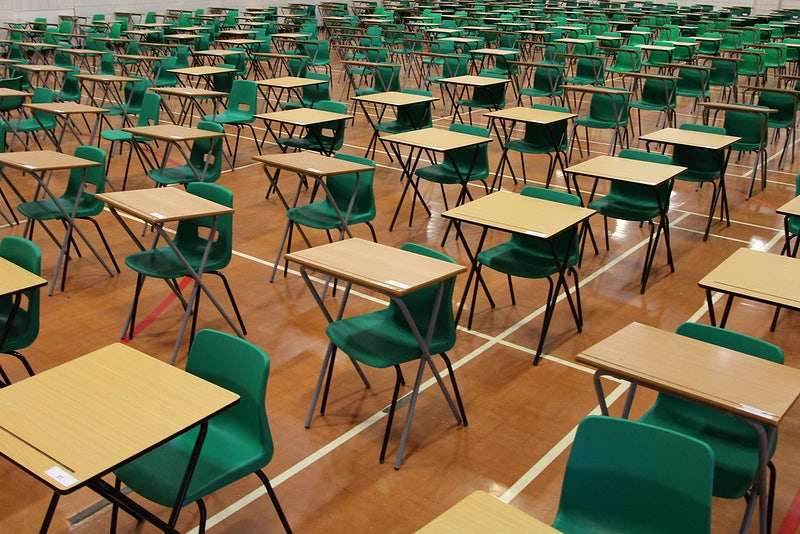
According to the CDC, high school students need eight to ten hours of sleep each night in order to function properly. However, out of 51 FLHS students questioned, only five of them stated that they got eight or more hours of sleep on the average school night. This means that roughly 9.8% of Ludlowe students get a healthy amount of sleep each night, which is a worrying statistic.
So, why do students at Ludlowe get so little sleep? To start, most FLHS students need to wake up at roughly 6:00-6:30am in order to be able to get to school on time. This means that in order to reach the eight hour minimum of sleep, they would need to go to bed at roughly 10:00-10:30pm, which simply isn’t attainable for most students. School starts at 7:30am and ends at 2:10pm, which is six hours and forty minutes of school, which leaves a window of about eight hours for students to complete their homework, and to (hopefully) have some time to do whatever else they want. However, problems soon begin to emerge once extracurricular activities are taken into account. Out of the 46 people that said that they get less than eight hours of sleep a night, 40 stated that they do extracurricular activities outside of the school day. Activities can typically take anywhere from one to three hours, or even go late into the night if they have a game or a meet. Assuming that most activities are roughly two hours, this means that students are away from home for almost nine hours straight every day during the school week, which can get tiring extremely fast.
The problem begins to worsen once a student’s workload outside of school is considered. Students cannot truly relax once they get home because on a typical week night, as most usually have multiple hours of homework to do. Of the 46 students with less than eight hours of sleep a night, 27 students reported to have less than four hours of free time before 10pm. This can lead to even further exhaustion, as there’s very little time for students to pursue their interests, or to simply relax. Between the constant work and stimulation of the school day, and the hours of rigorous work after, it’s no surprise that student’s sleep schedules can suffer.
This also leads into another factor of sleep deprivation, which is known as revenge bedtime procrastination. According to the sleep foundation, revenge bedtime procrastination is “the decision to sacrifice sleep for leisure time that is driven by a daily schedule lacking in free time.” 11 of the 46 students with insufficient sleep reported staying up past 10pm in order to have more time to themselves due to their high workloads. Students having to sacrifice sleep in order to have some time to themselves is a massive red flag; there simply shouldn’t be a need for students to do so.
So, what can be done to help students sleep? Teachers shouldn’t necessarily assign less homework (as many do assign reasonable amounts), but rather there should be an extent to how much homework is graded. In subjects such as math and science, students should hold themselves accountable for practicing concepts that they’re unfamiliar with, rather than be forced to do dozens of problems in fields that they’re already confident in because their grade will suffer if they don’t. Classes such as English and social studies are much less black and white, but students shouldn’t be doing most of their coursework at home. The very concept of homework limits the amount of free time students have outside of school, and the constant pressure of potential lower grades can lead to the loss of sleep. Students have lives outside of school, and it’s time that their workloads outside of it start to acknowledge it.







